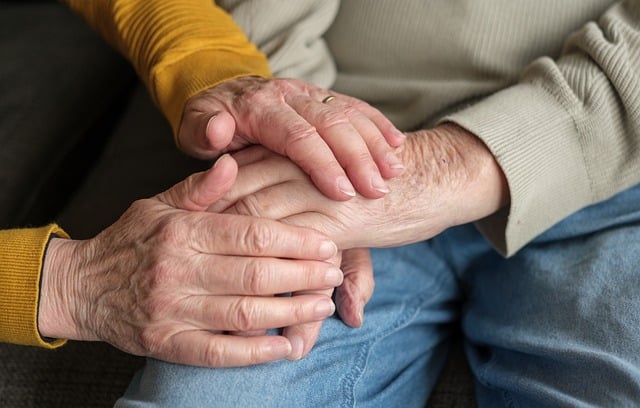Experience Peace of Mind: Affordable, Top-Rated Home Care in Bruni, Texas
Looking for a cost-effective way to ensure your loved ones receive the best senior care in Bruni, Te…….
In the heart of Texas lies a vibrant community known as Bruni, a small city that has embraced innovative approaches to healthcare delivery. At the forefront of this evolution is the concept of home care services, which has become a cornerstone of the local healthcare ecosystem. This article delves into the intricacies of home care services in Bruni, exploring its definition, global impact, economic significance, technological advancements, regulatory framework, and future prospects. By examining these aspects, we aim to provide a comprehensive understanding of how this service transforms healthcare accessibility and quality for the residents of Bruni and potentially offer insights applicable to similar communities worldwide.
Definition: Home care services refer to a range of medical, social, and personal care support provided directly in an individual’s home rather than in a traditional healthcare facility. It encompasses various professional services, including nursing care, therapy, home health aides, and specialized services tailored to specific health conditions. In Bruni, Texas, these services are designed to promote independence, improve quality of life, and ensure accessibility to essential healthcare for individuals across all ages and abilities.
Core Components:
Nursing Care: Registered nurses (RNs) or licensed practical nurses (LPNs) provide direct patient care, monitor vital signs, administer medications, and assist with personal hygiene.
Therapy Services: Physical therapists help patients regain mobility after an injury or surgery, while occupational therapists support individuals in performing daily tasks. Speech therapists address communication and swallowing issues.
Home Health Aides (HHAs): HHAs assist with activities of daily living (ADLs) such as bathing, dressing, meal preparation, and housekeeping, ensuring comfort and safety at home.
Specialized Care: This includes services like hospice care, respiratory therapy, diabetes management, and specialized support for individuals with chronic conditions or disabilities.
Historical Context: The concept of home care has evolved over the past few decades, driven by changing healthcare preferences, technological advancements, and a recognition of patient needs. In the early 1900s, home nursing was primarily provided by family members or local community members. As the demand for specialized services grew, formal home care agencies began to emerge in the mid-20th century. Today, home care services are a well-established component of the healthcare system, catering to an aging population and individuals with diverse health needs.
Significance: Home care plays a vital role in addressing the challenges posed by an aging society and a growing demand for personalized healthcare. In Bruni, Texas, where access to specialized medical facilities might be limited, home care services ensure that residents can receive essential treatments and support without having to travel long distances. This not only improves patient outcomes but also reduces healthcare costs associated with hospitalizations and emergency room visits.
The influence of home care services in Bruni, Texas, extends far beyond its borders, as evidenced by global trends and international collaborations:
Global Home Care Market Growth: According to a report by ResearchAndMarkets (2021), the global home health care market size is projected to reach USD 534.6 billion by 2027, growing at a CAGR of 8.9% during the forecast period (2020-2027). This growth is driven by aging populations and increased demand for cost-effective healthcare solutions.
Regional Variations: The adoption and structure of home care services vary across regions. For instance, countries in Europe have well-established home care systems integrated into their national healthcare strategies, while the United States continues to expand its home care offerings due to a growing elderly population.
International Collaborations: Organizations like the World Health Organization (WHO) promote home care as an essential component of universal health coverage. Global initiatives focus on sharing best practices and improving quality standards, ensuring that home care services worldwide meet certain benchmarks.
The home care industry in Bruni, Texas, is a vital economic sector, contributing to the local GDP and employment:
Market Size: As of 2022, the home health care market in Texas was valued at approximately $15 billion, with a projected annual growth rate of 6.5% from 2022 to 2030 (Grand View Research, 2022).
Employment: Home care services support numerous jobs, including nurses, aides, therapists, and administrative staff. In Bruni, these positions provide employment opportunities for local residents, contributing to a skilled workforce.
Investments in home care services have been increasing globally, reflecting its growing importance:
Private Investments: Private equity firms and venture capitalists are showing growing interest in home care startups, funding innovations in technology, and expanding service offerings.
Public Funding: Governments worldwide allocate significant budgets to home care programs, recognizing their role in reducing healthcare costs and improving patient outcomes. In Texas, state and local governments provide funding for Medicaid-focused home care services, ensuring accessibility for low-income residents.
Revenue Generation: Home care agencies in Bruni contribute to the local economy through revenue generated from service fees, government reimbursements, and private insurance payments.
Cost Savings: By providing care at home, these services reduce the financial burden on patients and their families, preventing costly hospitalizations and long-term care facility placements.
Technology plays a transformative role in modern home care services:
Telehealth: Remote patient monitoring and telehealth consultations enable healthcare providers to deliver services virtually, expanding access for rural or geographically dispersed residents.
Mobile Health (mHealth) Apps: These apps facilitate communication between patients, caregivers, and healthcare providers, allowing for real-time updates on medication schedules, appointment reminders, and health data tracking.
Wearable Devices: Wearables like fitness trackers and medical-grade devices enable continuous monitoring of vital signs, early detection of health issues, and improved disease management.
Robotic Assistance: Robotic assistants can assist with certain tasks, such as medication administration and mobility support, reducing the workload on caregivers and healthcare professionals.
The regulatory environment surrounding home care services ensures quality, safety, and ethical practices:
Licensing and Certification: Home care agencies in Texas must obtain licenses from the Texas Department of Health and Human Services (TDHHS). Providers are also required to meet specific training and certification criteria.
Quality Assurance: The TDHHS conducts regular inspections and assessments to ensure compliance with quality standards, patient rights, and safety protocols.
Insurance Coverage: Home care services may be covered by private insurance policies, Medicaid, or Medicare, depending on the individual’s eligibility and the type of service provided.
Aging Population: As the global aging population continues to grow, there will be an increased demand for home care services, presenting a significant opportunity for expansion and innovation.
Technology Integration: Advancements in technology offer opportunities to improve service delivery, enhance patient monitoring, and provide more personalized care plans.
Global Knowledge Sharing: International collaborations can lead to the adoption of best practices, improving the overall quality of home care services worldwide.
Workforce Shortages: The demand for skilled home care professionals often exceeds the available supply, leading to staffing challenges and potential delays in service delivery.
Cost Coverage: Ensuring adequate reimbursement rates for home care services is crucial to attract and retain qualified providers.
Digital Divide: While technology offers benefits, addressing the digital divide among older adults and caregivers is essential to ensure equal access to telehealth and mHealth services.
Home care services in Bruni, Texas, represent a significant advancement in healthcare delivery, catering to the diverse needs of its residents. By examining its global impact, economic significance, technological advancements, and regulatory framework, we gain insights into how this service model can be optimized for better patient outcomes and improved quality of life. As the world navigates an aging population and evolving healthcare preferences, home care continues to be a cornerstone of comprehensive healthcare systems worldwide.

Looking for a cost-effective way to ensure your loved ones receive the best senior care in Bruni, Te…….

Tired of the constant strain and lack of time? Let our home care services in Bruni, Texas be your so…….

Tired of juggling caregiving with your other responsibilities? In Bruni, Texas, Home Care Services o…….

Looking for home care services in Bruni, Texas? Best Home Care offers more than just assistance; we…….

Looking for reliable home care services in Bruni, Texas? Best Local Caregiving offers unparalleled p…….

Looking to save on healthcare costs without compromising quality of life? Home care services in Brun…….

Are you seeking reliable and affordable home care services in Bruni, Texas? Look no further than Loc…….

Looking for top-quality Home Care Services in Bruni, Texas? Affordable Luxury: Home Care offers a lu…….

Transform your life or that of a loved one with our top-rated home care services in Bruni, Texas. We…….

Need reliable home care services in Bruni, Texas? Personalized Home Care is your solution. We offer…….